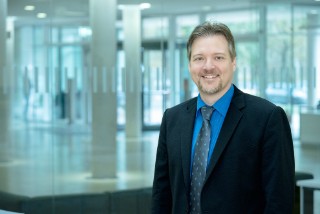Our patented 3D printing process enables the production of personalized neuro-implants made of medical silicone with integrated conductive pathways for measuring or stimulating neuronal areas. This independence also enables the development of neurophysiological implants for research purposes.
In addition to patient-specific implants, we are developing durability tests for implants. In order to be able to evaluate the long-term durability of implants, we provide new test methods tailored to the specific requirements. These include methods for testing of osseointegration for orthopedic implants and, in particular, testing of active implants.
We are for example developing standardized methods for long-term functional tests of neural implants in vivo for objective evaluation.
Bridging the gap: from academic research to clinical trials
Osseointegration and regulation of finger prostheses: Some 20 million people in Germany suffer from a rheumatic disease. With about 5 million people, the hand and sometimes also the finger joints in particular, are affected – the thin bones, which offer far less stability. Previous forms of therapy have very often resulted in stiffening of the joints.
The collaboration of 5 Fraunhofer Institutes in the project “Fingerkit” enables the development of a unique, new therapy, and thus the remobilization of finger joints through individually adapted joint implants. To ensure rapid transferability to clinical and industrial applications, all institutes are working together during the project on cross-institute, standard-compliant, digital documentation of their processes in line with MDR requirements. Within the scope of this project, Fraunhofer ITEM is evaluating osseointegration using test methods developed in-house for in vivo specimen.
 Fraunhofer Institute for Toxicology and Experimental Medicine
Fraunhofer Institute for Toxicology and Experimental Medicine
